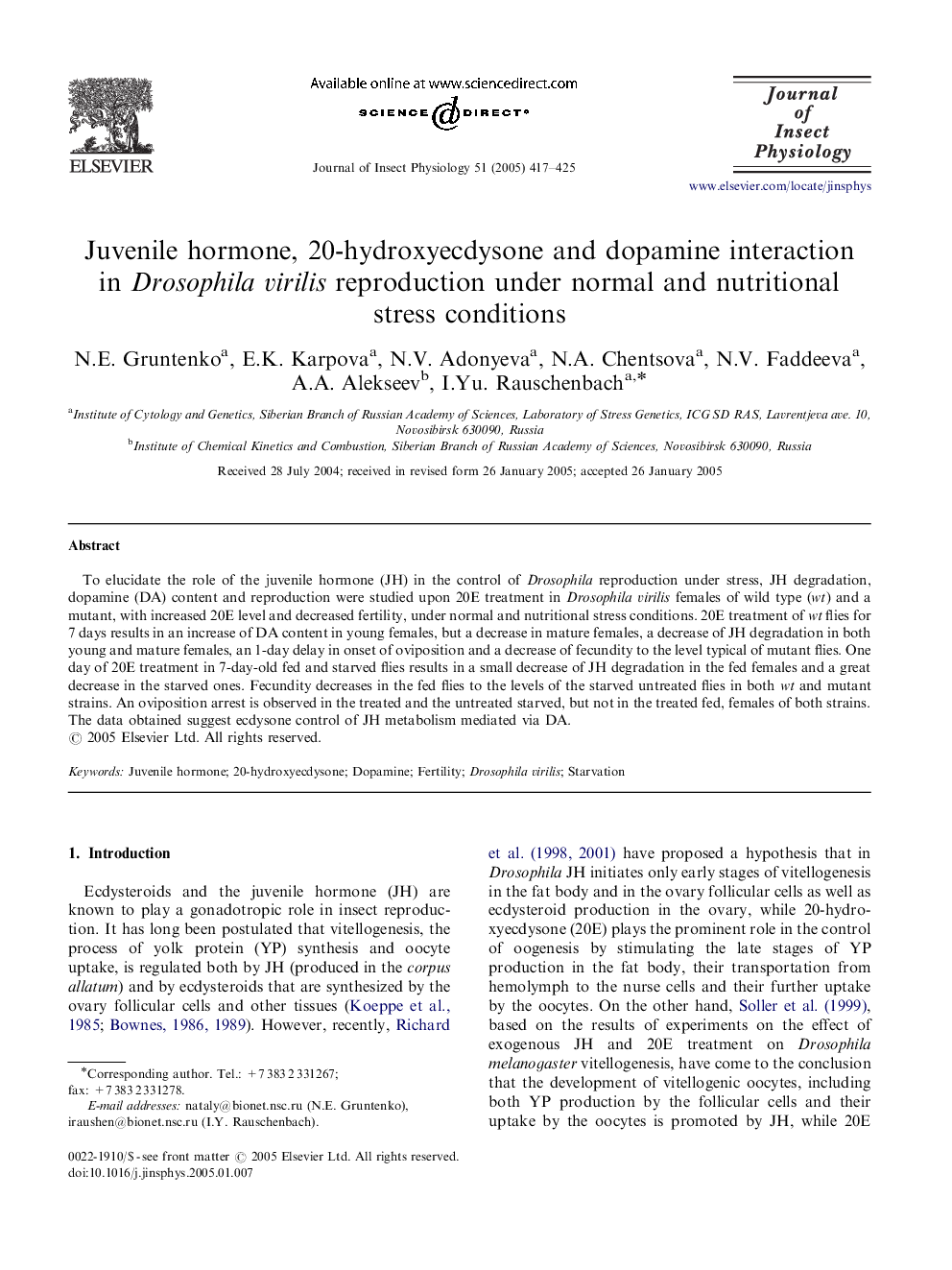| Article ID | Journal | Published Year | Pages | File Type |
|---|---|---|---|---|
| 9147909 | Journal of Insect Physiology | 2005 | 9 Pages |
Abstract
To elucidate the role of the juvenile hormone (JH) in the control of Drosophila reproduction under stress, JH degradation, dopamine (DA) content and reproduction were studied upon 20E treatment in Drosophila virilis females of wild type (wt) and a mutant, with increased 20E level and decreased fertility, under normal and nutritional stress conditions. 20E treatment of wt flies for 7 days results in an increase of DA content in young females, but a decrease in mature females, a decrease of JH degradation in both young and mature females, an 1-day delay in onset of oviposition and a decrease of fecundity to the level typical of mutant flies. One day of 20E treatment in 7-day-old fed and starved flies results in a small decrease of JH degradation in the fed females and a great decrease in the starved ones. Fecundity decreases in the fed flies to the levels of the starved untreated flies in both wt and mutant strains. An oviposition arrest is observed in the treated and the untreated starved, but not in the treated fed, females of both strains. The data obtained suggest ecdysone control of JH metabolism mediated via DA.
Related Topics
Life Sciences
Agricultural and Biological Sciences
Insect Science
Authors
N.E. Gruntenko, E.K. Karpova, N.V. Adonyeva, N.A. Chentsova, N.V. Faddeeva, A.A. Alekseev, I.Yu. Rauschenbach,
